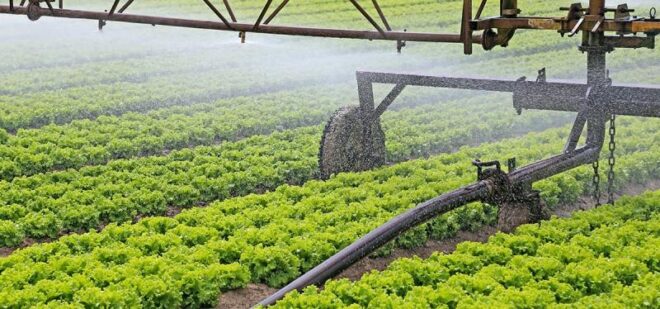
According to TechSci Research report, “Global Irrigation Automation Market By Component (Controllers, Sensors, Weather-Based, Soil-Based, Fertigation Sensors, Valves, Sprinklers, Others), By System Type (Automatic v/s Semi-Automatic), By Automation Type (Time-Based, Volume-Based, Real-time Based, Computer-Based Control System), By Irrigation Type (Sprinkler, Drip, Surface, Lateral Move), By End Use (Agricultural v/s Non-Agricultural), By Region, Forecast & Opportunities, 2025”, the global irrigation automation market is expected to grow at a formidable rate during the forecast period on account of global climate change, which has led to change in rainfall patterns across different parts of the globe.
Important Elements of the Global Irrigation Automation Market
This in turn has caused water scarcity, thereby increasing the use of smart irrigation techniques for agricultural and irrigation purposes, which in turn is expected to positively influence the market growth through 2025. Additionally, the increasing adoption of smart farming techniques and agricultural practices by farmers is further expected to fuel market growth. Furthermore, advancements in agricultural machinery and equipment are expected to spur market growth over the next few years. Besides, technological advancements and new product launches by the major players operating in the market are expected to create lucrative opportunities for market growth during the forecast period. However, the high cost of installation and deployment of irrigation automation systems might hamper the market growth through 2025.
Also, the dearth of technical knowledge and skilled man force for using irrigation automation systems, especially in emerging economies might hinder market growth over the next few years. Moreover, issues pertaining to data management and aggregation might further impede the market growth during the forecast period. Furthermore, a lack of infrastructure especially in the emerging world might also restrict market growth.
Browse XX market data Tables and XX Figures spread through XX Pages and an in-depth TOC on the “ Global Irrigation Automation Market“.
The global irrigation automation market is segmented based on component, system type, automation type, irrigation type, end-use, company, and region. Based on system type, the market can be split into automatic and semi-automatic. Here, the automatic segment is expected to dominate the market owing to their widespread adoption in both agricultural and non-agricultural applications. Based on automation type, the market can be grouped into time-based, volume-based, real-time-based, and computer-based control systems. Among these, the time-based segment is expected to dominate the market on account of its flexibility.
They provide the farmers an option to control the irrigation process in terms of time. Based on irrigation type, the market can be categorized into a sprinkler, drip, surface, and lateral move. The drip irrigation segment is expected to dominate the market during the forecast period owing to its high efficiency, durability, and long life. The sprinkler segment is also expected to hold a significant market share owing to their extensive use in sports complexes, and golf courses, among others. Based on end use, the market can be bifurcated into agricultural and non-agricultural. The agricultural segment is expected to dominate the market on account of the use of irrigation automation systems for real-time monitoring of soil conditions with minimal human intervention.
The Major competitors of the Global Irrigation Automation Market
- The Toro Company
- Hunter Industries
- Valmont Industries Inc.
- Rain Bird
- Lindsay Corporation
- Rubicon Water
- Weathermatic
- Nelson Irrigation
- Avanijal Agri Automation Pvt Ltd.
- Calsense
- Irritec S.P.A
- Bluray, Novagric
- Tevatronic
- Netafim Ltd. and others are some of the leading players operating in the global irrigation automation market. The companies operating in the market are using organic strategies such as product launches, mergers, and collaborations to boost their share.
Customers can also request 10% free customization on this report.
“North America is expected to dominate the global irrigation automation market during the forecast period, owing to the growing water scarcity in the region. Additionally, a decrease in annual precipitation has led to a change in rainfall patterns, which in turn is expected to fuel the market growth through 2025. Furthermore, strict government policies for decreasing water footprint, especially in the United States, are expected to fuel market growth over the next few years. Also, the presence of major players operating in the market in the North America region is further expected to create lucrative opportunities for the market growth through 2025.” said Mr. Karan Chechi, Research Director with TechSci Research, a research-based global management consulting firm.
“Global Irrigation Automation Market By Component (Controllers, Sensors, Weather-Based, Soil-Based, Fertigation Sensors, Valves, Sprinklers, Others), By System Type (Automatic v/s Semi-Automatic), By Automation Type (Time-Based, Volume-Based, Real-time Based, Computer-Based Control System), By Irrigation Type (Sprinkler, Drip, Surface, Lateral Move), By End Use (Agricultural v/s Non-Agricultural), By Region, Forecast & Opportunities, 2025”, has evaluated the future growth potential of global irrigation automation market and provides statistics & information on market size, structure and future market growth. The report intends to provide cutting-edge market intelligence and help decision-makers take sound investment decisions. Besides, the report also identifies and analyzes the emerging trends along with essential drivers, challenges, and opportunities in the global irrigation automation market.
Contact
Mr. Ken Mathews
708 Third Avenue,
Manhattan, NY,
New York – 10017
Tel: +1-646-360-1656
Email: sales@techsciresearch.com
